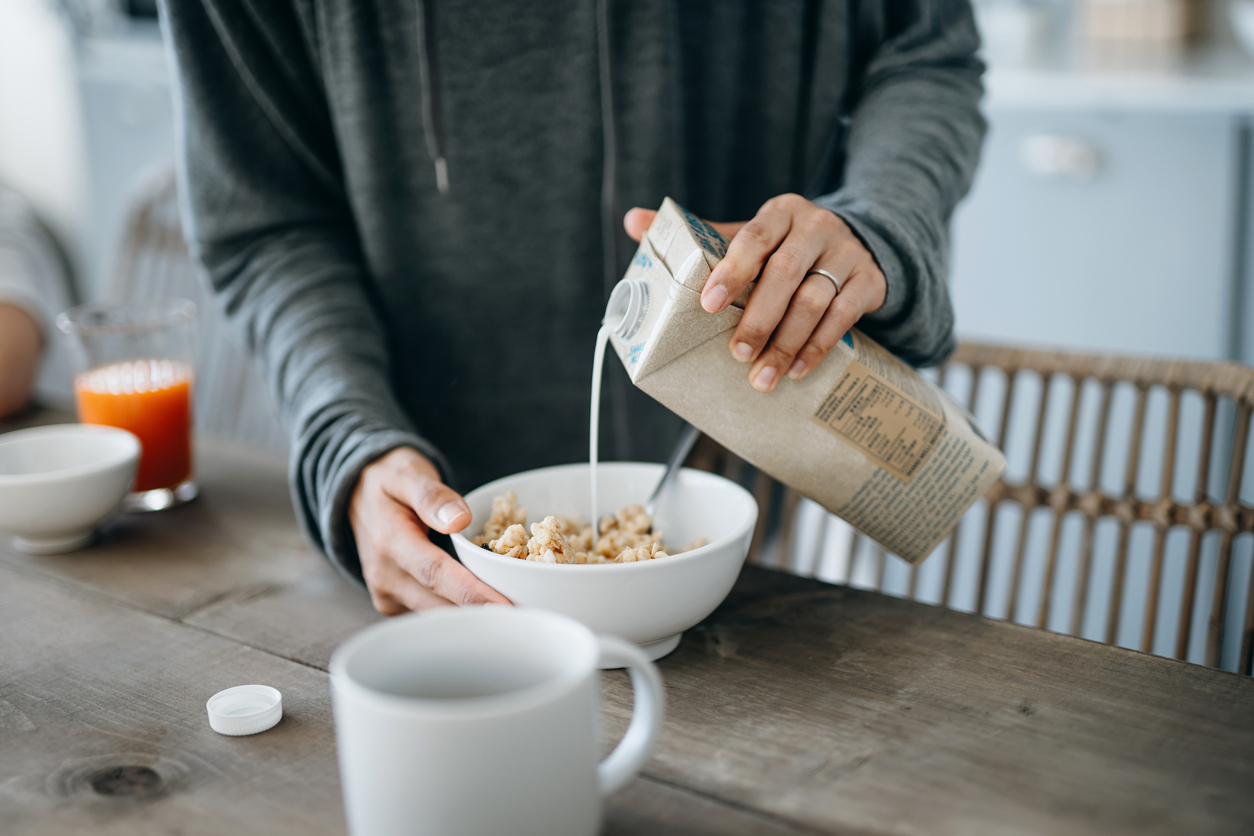Avoid These Four Foods If You Are Taking Antibiotics
Antibiotics are amazing at fighting infections—so much so that they are often overprescribed to patients hoping for a quick fix to get rid of various maladies. However, antibiotics only fight one type of illness: bacterial infections, such as strep throat or urinary tract infections. For viral infections such as colds or the flu, they’re completely ineffective.
In order to maximize the efficacy of antibiotics, they need to be prescribed appropriately and used properly. To avoid stomach upset, antibiotics should be taken with food—but some foods can lead to other undesirable side effects, and even keep the drugs from doing their job. Read on for four things you should avoid when you’re taking antibiotics.
READ THIS NEXT: Never Take These 2 Common OTC Medications at Once, Experts Warn.

Avoiding fruit juice while you’re taking antibiotics is a good idea, and grapefruit in particular is one to steer clear of, according to Kelsey Lorencz, RDN and nutrition advisor for Fin vs Fin. “Orange, apple, cranberry, and grapefruit juices all have the potential to interfere with the effectiveness of antibiotics,” she explains. “Grapefruit juice, especially, can increase the potency of many medications, making it dangerous to mix the two.”
It doesn’t take a lot of grapefruit to potentially cause problems. “It’s important to remember that just one whole grapefruit or about one large glass of juice is enough to change the blood levels of many drugs,” says Healthline. “And some of these medications may have serious side effects when they interact with grapefruit.”

This is a tricky one. “Dairy products including milk, cheese, and yogurt can reduce the effectiveness of some antibiotics because of the high calcium content,” advises Lorencz. “The calcium in dairy can bind to the antibiotics, keeping them from doing their job.”
But aren’t we supposed to take yogurt with antibiotics in the hopes that the probiotics will help prevent unwanted side effects like diarrhea? Good question. Yes, probiotics can offset the gastrointestinal effects of antibiotics, but as Lorencz points out, dairy products can interfere with how well your antibiotics work. “Leave a two-to-three hour window between taking the antibiotic and eating or drinking dairy,” Lorencz says. And stock up on other, non-dairy foods that contain helpful probiotics; according to PureWow, these include sauerkraut, kimchi, and olives.

Dairy products aren’t the only foods with calcium. “Common fortified foods include breakfast cereals, some plant based milks, and granola bars,” says Lorencz. “Eating foods that are fortified with minerals like calcium can reduce the effectiveness of antibiotics just the same as drinking milk can,” she explains. And even non-dairy milk can be a sneaky source of calcium and minerals, according to Samaritan Health Services.
Another component of fortified foods to look out for is iron. Registered dietician Katrina Seidman told the Chicago Tribune that both “Calcium and iron can interfere with the body’s ability to absorb certain kinds of antibiotics known as quinolones.” In addition to dairy products, Seidman recommends staying away from iron-rich foods (such as hot dogs or cereal that is fortified with iron) while taking antibiotics.
For more health news sent directly to your inbox, sign up for our daily newsletter.

If you’re taking antibiotics, it’s not a good time to drown your strep throat sorrows with a frosty mug of beer or a cocktail. “Alcohol is processed in the liver, just as many medications, including some antibiotics, are,” cautions Lorencz. “In some cases, it can make the medication less potent or more potent, both of which you don’t want when taking an antibiotic.”
Antibiotics aren’t the only medication to avoid while consuming alcohol. “Hundreds of commonly used prescription and over-the-counter drugs may adversely interact with alcohol,” warns WebMD. “In some cases, alcohol interactions may decrease the effectiveness of medications or render them useless. In other cases, alcohol interactions may make drugs harmful or even toxic to the body.” These include heart medications, nonsteroidal anti-inflammatory drugs (NSAIDs), and blood-thinning medications, says WebMD.
Best Life offers the most up-to-date information from top experts, new research, and health agencies, but our content is not meant to be a substitute for professional guidance. When it comes to the medication you’re taking or any other health questions you have, always consult your healthcare provider directly.
" Conservative News Daily does not always share or support the views and opinions expressed here; they are just those of the writer."





